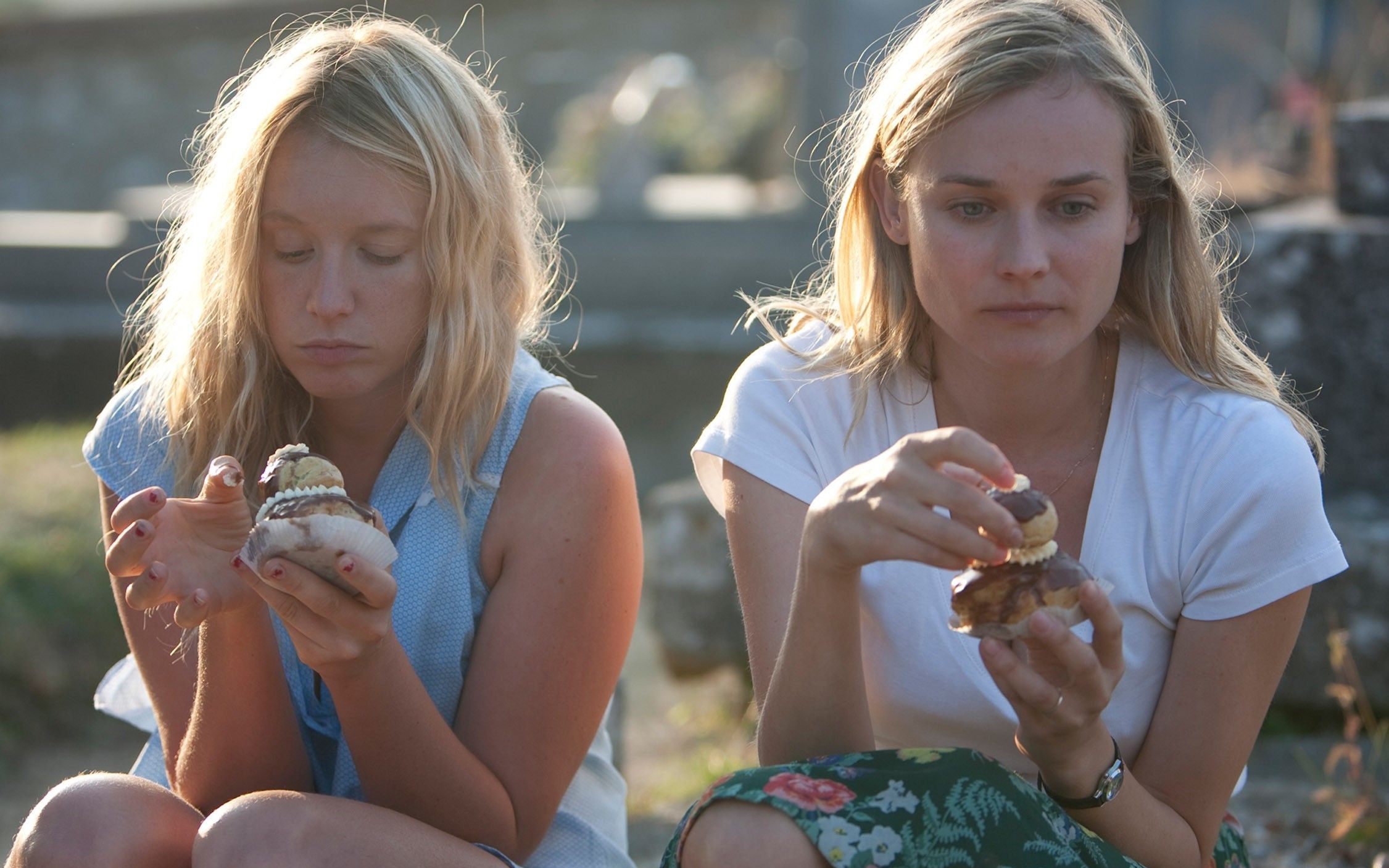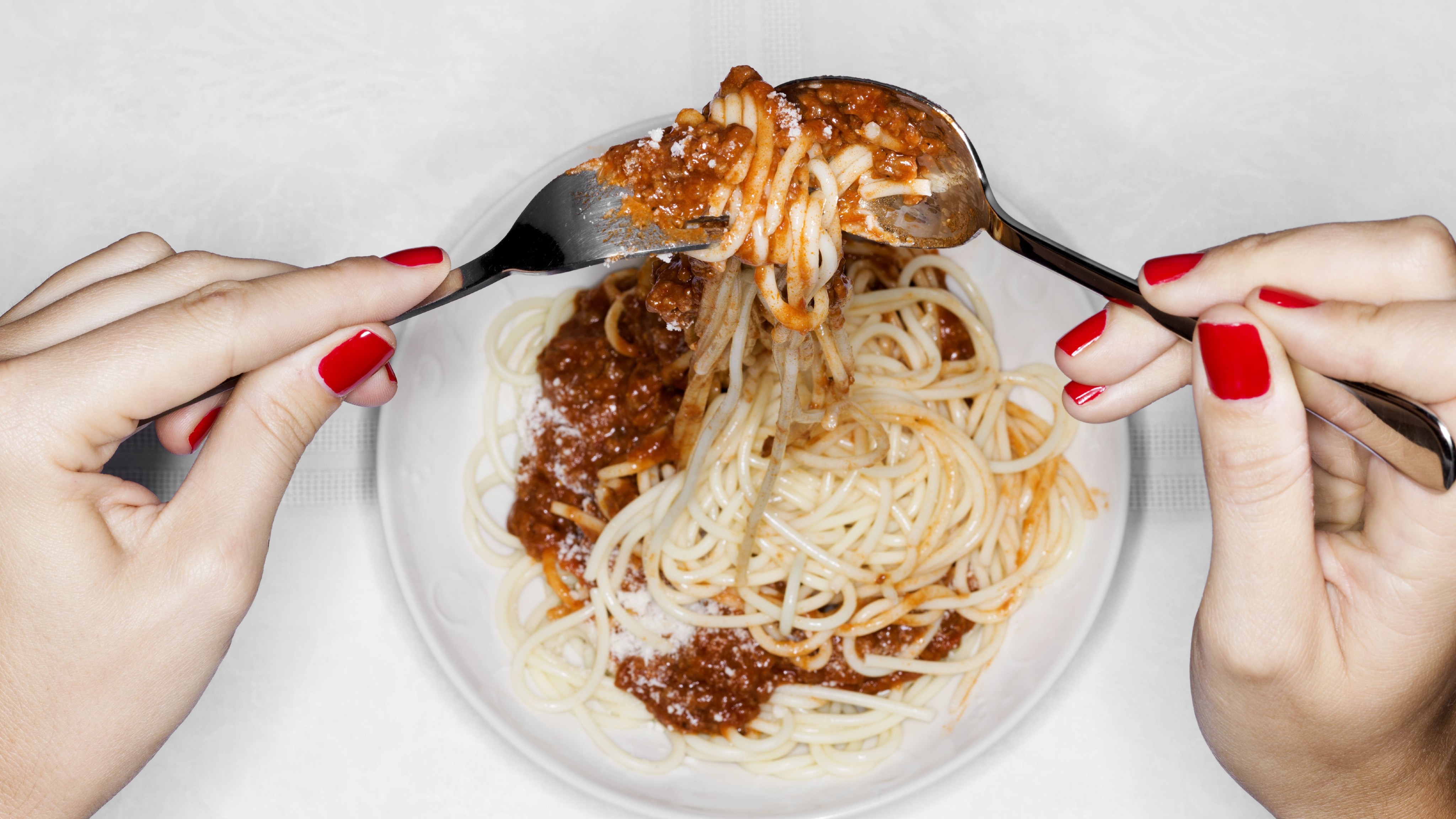How Much Do You Have to Think About Eating for It to Become a Disorder?
Or, "Are We Going to Be Okay?"

We all do it, but don't you feel just a little f*cked up? Eating lunch in order of least-to-most bloat risk, starting with the vegetables and ending with whatever it is on your plate you'd rather have bitten into first. Reading one of those grocery-shopping guides for "neurotic eaters" concerned about cabbages feeling pain. Reading—and enjoying—food diaries, celebrity or not. Even *saying* something as casual as "After dinner, I stopped at a 16 Handles and got $8 worth of fro-yo. I don't even eat dairy. What's wrong with me?" (Based on a true story.)
What *is* wrong with us?
Every day, we make a thousand little calculations about what/where/when/why we eat, and to an extent, this is fine. But with the researching and the planning and the "I want to eat that thing I saw on Instagram"-ing, are we maybe thinking about this too much? When does it become a problem?
Every day, we make a thousand little calculations about what/where/when/why we eat.
In a very simplified sense, the answer has to do with duration, frequency, and how much it's impacting your life negatively, the last being the most significant, says Julie Friedman, Ph.D., vice president of the Compulsive Overeating Recovery Effort program for Eating Recovery Center's Insight Behavioral Health Centers in Chicago. (With behaviors like bingeing and purging, the standard is usually once a week, taking into account that multiple shorter episodes versus a single longer one are just as problematic.) But when you're not forcing yourself to vomit or overeat—when you just want to reach an equilibrium of healthy and anti-inflammatory and not-that-bad-tasting—the diagnosis is a bit more complicated.

Pasta on my mind.
"Healthy management of your food does require some effort," Dr. Friedman says. "Where I would make that differentiation is not in the amount of time it's taking—although the exception to that would be if you're spending most of the day either thinking about food or planning food—but it's the impairment in your functioning and the distress it's causing. So if I'm grocery shopping every single night and not going out with friends because I have this rigid, inherent need to have to do this to make myself feel safe in what I am eating, that is an eating disorder."
There is a more concrete standard, though: approximately two hours a day to contemplate whether you've got the body type that should do protein or carbs for breakfast or if you ought to take Tom Brady's stance on nightshades. But back to your emotions, which lie at the core of your, if not "recovery," than "improvement."
"The more that we can start thinking about food less emotionally...the less impulsive, less judgmental, and emotional we can be around our food behaviors, the better off we are," Dr. Friedman says. "That's a refrain we constantly tell our patients: 'Facts, not feelings.' What is the fact? The fact is that you ate a hamburger, not that you are eating poorly. The fact that you are eating poorly is your own judgment, your own emotion. It is what it is, and you have another opportunity to eat in three hours. The research indicates that beating yourself up only results in further disinhibited eating—it leads to not only to a lot of bad feelings about food but also a lot of preoccupation with food, and that's not helpful for anybody."
Get exclusive access to fashion and beauty trends, hot-off-the-press celebrity news, and more.
It is what it is, and you have another opportunity to eat in three hours.
Neither is social media, which Dr. Friedman says could exacerbate sub-threshold behaviors because it "breeds comparisons of all kinds: body, weight, food, even health."
So yes, the verdict is we *are* all kind of weird, but weird is somehow normal, and normal can become even more normal if we disassociate food with feelings. But if you're still not convinced, it couldn't hurt to double-check.
"People's ideas of what is normal are so skewed—by their peer group, socioeconomic status, genetics, parenting practices. And so, if you're in doubt, know that it's always better to ask and be told you live within normal limits than to live with an untreated eating disorder that will only get worse."
Follow Marie Claire on Facebook for the latest celeb news, beauty tips, fascinating reads, livestream video, and more.
Chelsea Peng is a writer and editor who was formerly the assistant editor at Marie Claire. She's also worked for The Strategist and Refinery29, and is a graduate of Northwestern University. On her tombstone, she would like a GIF of herself that's better than the one that already exists on the Internet and a free fro-yo machine. Besides frozen dairy products, she's into pirates, carbs, Balzac, and snacking so hard she has to go lie down.